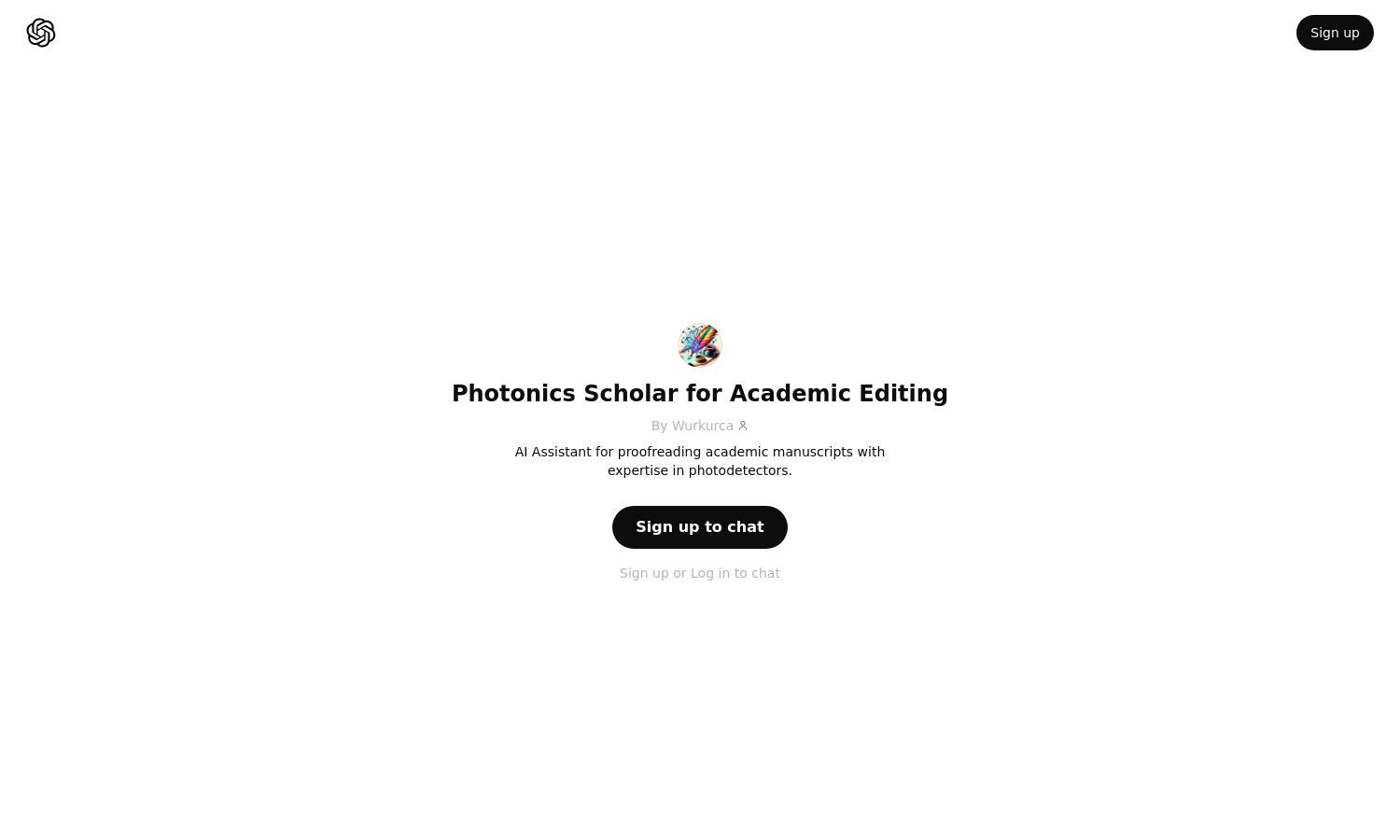ChatGPT - Photonics Scholar for Academic Editing

About ChatGPT - Photonics Scholar for Academic Editing
ChatGPT - Photonics Scholar for Academic Editing serves as an AI-powered assistant designed for academics and researchers in the field of photonics. It offers advanced proofreading capabilities, ensuring manuscripts meet publication standards while enhancing clarity. Users benefit from specialized knowledge in photodetector technologies, streamlining the editing process.
ChatGPT - Photonics Scholar offers a tiered subscription model, ensuring accessibility for various users. Each plan provides unique benefits, with options for individualized proofreading services. Upgrading enhances access to exclusive features and expanded support for more comprehensive projects, catering specifically to academic needs in photonics research.
ChatGPT - Photonics Scholar features an intuitive user interface designed for seamless navigation and ease of use. Its layout allows users to quickly access proofreading tools and resources, while its responsive design enhances the overall browsing experience. The website simplifies collaboration for researchers dealing with complex documents.
How ChatGPT - Photonics Scholar for Academic Editing works
Users start by signing up on ChatGPT - Photonics Scholar, creating an account to unlock the AI assistant's features. Once onboarded, they can upload academic manuscripts and receive tailored proofreading services. The platform highlights necessary adjustments, providing insights on improving clarity and technical accuracy, making it an efficient tool for researchers.
Key Features for ChatGPT - Photonics Scholar for Academic Editing
Expert Proofreading
ChatGPT - Photonics Scholar’s expert proofreading feature ensures high-quality revisions tailored for academic manuscripts. By utilizing AI and domain-specific knowledge in photodetectors, it delivers precise feedback, helping users enhance the clarity and polish of their research before submission, ultimately improving publication chances.
Tailored Feedback
The tailored feedback feature of ChatGPT - Photonics Scholar offers personalized insights for manuscripts in photonics research. This unique offering allows researchers to receive constructive critiques specific to their field, ensuring that their academic writing meets the standards of top-tier journals and enhances their work’s overall impact.
Seamless Collaboration
ChatGPT - Photonics Scholar promotes seamless collaboration among researchers by allowing multiple users to access and edit documents. This key feature enables efficient teamwork, ensuring that feedback and revisions are easily shared and integrated, which is crucial for managing complex academic projects in the field of photonics.
You may also like:








